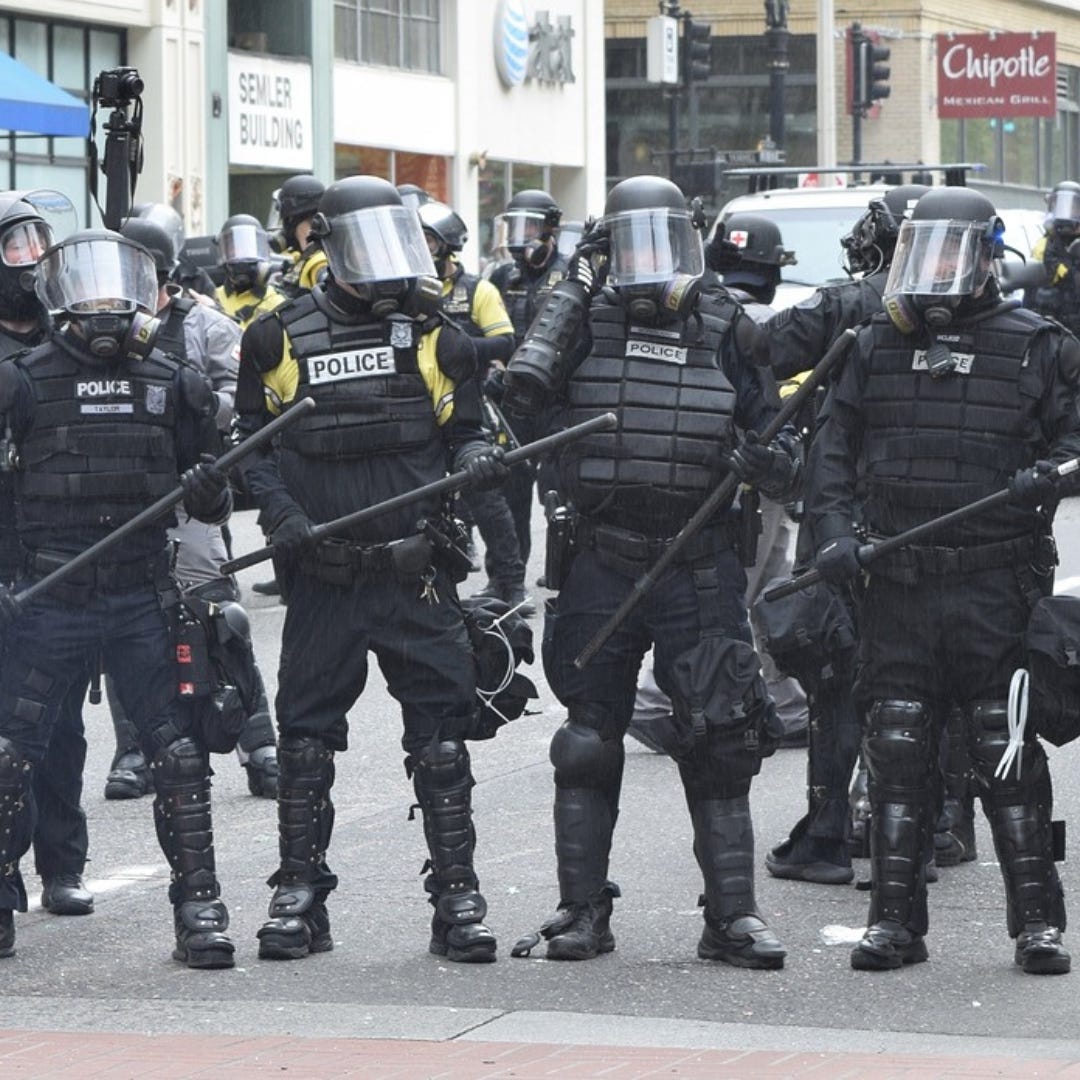If you’re a police officer reading this, you need to know that you’re not alone. There are good people who care about you, and in fact some often ask me how they can be supportive. There are also advocates on the law enforcement side who so get what you’re going through.
Keep this in mind when you feel like nobody cares, understands, or is even listening. : )
With that said, let’s get to work . . .
How I Wrapped Up National Police Week
This afternoon, we taped a segment for a project I’ve been working on for the past couple months. It’s called How the War on Police Harms Women - and how women can take the lead in supporting police officers & restoring public safety.
My goal in creating this, as the title implies, is to educate women on how we’re now at an increased risk of becoming crime victims. More importantly, I want to inspire other women to advocate for police officers and public safety, and give them the tools that will support them in accomplishing it.
The group I partnered with (and am a proud member of), Independent Women’s Network, hosted the event. The presentation consists of a PowerPoint presentation and discussion with an esteemed law enforcement officer who, I just know will impress the heck out of anyone who watches the segment.
Tens of thousands of women will ultimately have access to this production. That’s an awful lot of potential new voices speaking out for law and order!
I’m immensely grateful for this opportunity, and still feel like I’m walking on air.
Did you have any activities planned this National Police Week?
Let’s Discuss: Police Consulting Agencies
The willingness for a police department (or any human being, for that matter) to reflect and continually strive to make improvements, is noble. Growth is a beautiful thing; none of us, after all, is infallible.
Though our Madison Police Department excels at policing with honor and integrity, retired Chief Mike Koval would openly admit that there was always room for improvement. He did it in a way, however, without apologizing for his department or officers. Balance is vital here, and he was exceptionally skilled at it.
What I have an issue with, are departments who align with police consulting agencies that -let me say this as delicately as possible- tend not to be the biggest cheerleaders of law enforcement, IMO.
Here in Madison, the former interim chief called upon the Quattrone Center at the University of Pennsylvania to analyze the Department’s response to the 2020 riots. Quattrone is clear about where they stand. Look at their website and you’ll see themes about ending mass incarceration (which in itself is a good goal to strive for, provided it’s not done on the backs of the citizenry) and leading on systemic police change.
Looking at their board and advisors, I can’t find any police officers (who aren’t apologists for the profession) or crime victim advocates. I do, however, see the following: criminal defense attorneys, justice advocates, sociology & criminology professors, and Kim Foxx, Cook County district attorney.
It is indeed important to work towards a criminal justice system that serves all of us and respects all our rights. And it’s critical to bring all good faith voices to the table to discuss policing. We grow and solve problems when we listen to each other and share.
When it comes to public conversations about public safety, however, the diversity aspect is often missing. They tend to gravitate towards what cops do wrong and how society has failed criminals - while ignoring the voices of crime victims and the effects of an unrelenting war on cops.
How are organizations that are (IMO) singularly-focused, qualified to analyze police departments?
In their report, Quattrone concluded that although the Madison Method for crowd control had been effective in the past (It most certainly has worked well!), it fell short during the 2020 demonstrations.
Don’t put the onus for chaos on the Madison Method or rank-and-file officers. The situation unraveled because police officers weren’t allowed to do their jobs as they’ve been trained to do. And like other police departments across the country, they were ordered to stand down. That’s why it was a fiasco.
Although public discussions on public safety purport to include a “highly diverse group of community stakeholders” the participants tend to be like-minded. The hosts are quick to mention that they invite law enforcement into their discussions, but the police officers they do invite tend to be (again, let me say this delicately), police apologists.
A few of us were quite vocal in advocating for the Madison PD for more than three years, yet were never invited to sit at these tables. Says a lot right there.
That’s all I have for today. I hope you all have an amazing weekend! Please stay safe out there. : )
For the Blue is a solutions-based initiative. I’m just an American patriot asking questions. I don’t work with any political party and I answer to nobody. For me, the health of the nation, due process (including for police officers), the rule of law, and respect for individual liberties, will always transcend party affiliation. I welcome your thoughts, even if you disagree; though personal attacks will be ignored. You can reach me at fortheblue@substack.com.









Commissioner Bratton expressed his concern for the criminal justice research community during a Manhattan Institute event and I am paraphrasing, 'that they are all really writing to one another.' One notable staff member is Anthony A. Braga who was a primary strategy member of the 90s team that attributed the Boston Miracle to their own work and efforts. A pleasant surprise was Stuart Taylor, an author who works illustrates the harm of affirmative action to the minority communities they are supposed to benefit.